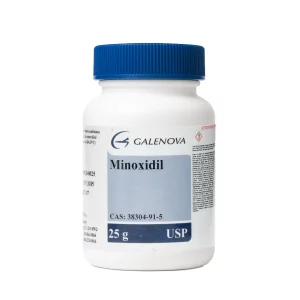Your cart is empty.
Your cart is empty.
The intricate dance between physical and mental health is becoming increasingly evident. What happens in our body profoundly affects our mind, and vice versa. Factors like blood sugar balance, body weight, and systemic inflammation don’t just impact our physical state; they significantly influence our mood, energy levels, and overall emotional well-being. Within this context, medications initially developed for metabolic conditions, like Mounjaro (Tirzepatide), are drawing attention for potential effects beyond their primary targets.
While approved for type 2 diabetes and widely used for weight loss, there’s growing curiosity about broader implications for new medications. These discussions touch on areas from Mounjaro and fertility discussions to preliminary research exploring links like Mounjaro and Dementia prevention. There is even a potential role in strategies aiming for Mounjaro for Longevity. Could Mounjaro also offer unexpected mental health benefits? Let’s explore the current understanding.

Obesity and fluctuating blood sugar can cause low self-esteem, anxiety, depression, irritability, and mood swings. Conversely, achieving significant weight loss and stabilizing blood sugar levels can often lead to noticeable improvements in mental and emotional states. Many individuals report increased energy, improved self-confidence, greater motivation, and a more positive outlook as they shed pounds and gain better metabolic control. Mental clarity and emotional resilience often improve when the body isn’t constantly battling energy dips and hormonal imbalances related to poor glucose regulation.
While Mounjaro itself is relatively new, research into the class of drugs it belongs to (GLP-1 receptor agonists, though Mounjaro also targets GIP receptors) offers some intriguing clues. Several studies investigating GLP-1 medications like liraglutide and semaglutide (found in Ozempic/Wegovy) have observed correlations with reduced symptoms of depression and anxiety in patients using them primarily for diabetes or weight management.
Early findings and anecdotal reports specifically concerning Mounjaro users sometimes echo these observations, with individuals reporting enhanced mood, greater emotional stability, and reduced feelings of anxiety. However, it’s crucial to interpret these findings cautiously. Are these direct effects of the drug on brain chemistry, or are they secondary benefits resulting from significant weight loss, improved energy levels, better sleep (often linked to weight loss), increased confidence, and positive lifestyle changes adopted alongside the medication? Most likely, it’s a combination, with the indirect effects playing a substantial role.

The potential for a direct effect isn’t entirely unfounded. We know that receptors for GLP-1 are not just in the gut and pancreas; they are also found in various brain regions, including those involved in appetite regulation, reward pathways, and mood control. Activating these receptors could influence neurotransmitter activity.
While animal and some human studies suggest GLP-1 agonists may affect mood and have neuroprotective properties, more research is needed to determine if and how Mounjaro impacts mental health.
Beyond formal studies, online forums, patient reviews, and wellness communities are filled with personal accounts of Mounjaro’s perceived impact on mental wellbeing. Common themes emerge:
However, it’s vital to remember that these are subjective experiences. Not everyone using Mounjaro reports these mental shifts, and individual responses can vary widely. Some may experience no change, while others might even face mood-related side effects.
When comparing Mounjaro to other popular GLP-1 drugs like Ozempic and Wegovy, the data on mental health effects is still evolving. While studies linking semaglutide (Ozempic/Wegovy) to potential mood improvements exist, direct, large-scale comparative research focusing specifically on the mental health outcomes of Mounjaro versus these other drugs is limited. The hypothesis that Mounjaro’s dual GLP-1/GIP action might offer broader or distinct neurological benefits compared to GLP-1-only drugs is plausible but remains largely speculative pending further investigation.
While the potential for mood improvement is an exciting prospect, several critical points must be emphasized:

Mounjaro may directly affect brain chemistry, but more research is needed. Mood improvements are likely linked to weight loss and other indirect benefits.
While some users report improvements in symptoms of depression or anxiety, Mounjaro is not an approved treatment for these conditions. It should not be used as a substitute for appropriate mental health care and therapies.
While generally safe, always consult your doctor to discuss potential interactions, side effects, and to ensure a safe and effective treatment plan.
Stabilized blood sugar, reduced food cravings, successful weight loss, and increased energy may all contribute to improved mental health.
Research on Mounjaro’s effect on mood is still emerging, but studies on similar drugs show promising results.


Minoxidil 25mg - Oral vasodilator for blood pressure management. Cardiovascular foundation support, pharmaceutical-grade standards, expert monitoring required.

Acarbose 50mg 120 Tablets - Gentle introduction to glucose control. Three-times daily with meals, precision-formulated tablet strength.

Dasatinib 20mg 60 Tablets - Flexible pediatric-strength dosing option. USP standards compliance, anytime administration, gradual increase capability.
Unlock savings on bundles and elevate your online experience today!